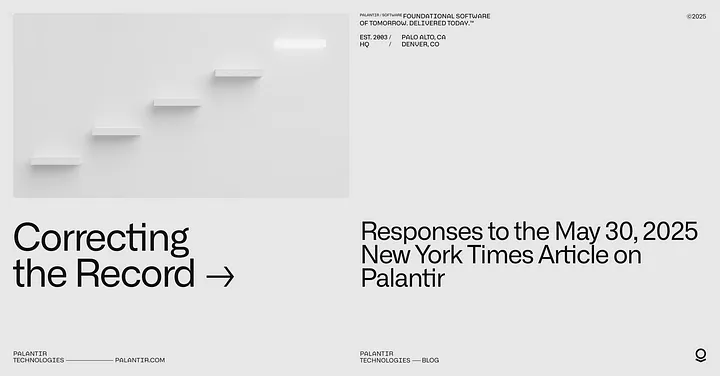Review and Literature Guide of Trump’s "One Big Beautiful Dataset"
Background/Executive Order
The Digital Trade and Data Governance Hub curates the latest literature and information on the challenges posed to personal and public data by the Trump Administration and the “one big beautiful dataset”. The Hub tracks the evolving government policies, executive orders, and announcements on if the Trump administration aims to compile a unified database of Americans’ personal information. By consolidating the latest news, research, and policy analyses, we provide our audience with a timely resource to understand how these shifts are reshaping the US data ecosystem
Executive Order on Data Sharing: On March 20, 2025 President Trump signed an executive order to “eliminate information silos” across federal agencies (whitehouse.gov). The order mandates that agencies share unclassified data with each other to fight fraud and waste. Although details are limited, news reports indicate the administration is leveraging this order to build a massive centralized data system. According to The New York Times (via The New Republic), the administration “has tapped Palantir to carry out” the order, aiming to compile a unified database of Americans’ personal information (newrepublic.com). Media outlets describe plans for a “master database” or “central intelligence layer” drawing on IRS, Social Security, immigration and other records. Since then, Palantir has publicly denied these claims stating the article is “blatantly untrue” via X (x.com/palantirtech) and a much more comprehensive blog post (blog.palantir.com).
Dangers and Concerns
Data Security and Misuse: Collecting and linking such a vast array of sensitive records could create an unprecedented surveillance infrastructure. The aggregation of sensitive records also creates a prime target for cyberattacks or leaks. Large centralized databases (like Aadhaar) have suffered breaches, showing how national ID systems can be vulnerable. A breach of an all-American database would risk identity theft, financial fraud, and exposure of medical or immigration status. Even without external attacks, such a system invites internal misuse: any individual with access could potentially extract or abuse data. There is a heightened risk of sensitive data being repurposed for uses beyond its original intent, or being used for political purposes—such as targeting critics or specific communities.
Mass Surveillance/Privacy/Constitutional Issues: A central citizen database could undermine Fourth Amendment privacy rights. Such a system allows for unprecedented surveillance capabilities, far beyond what has previously existed in the U.S., raising concerns about the erosion of personal privacy and the normalization of mass monitoring.
No Legal Guardrails or Oversight: With minimal legal safeguards or public oversight reported, critics fear the system could easily be used for political or discriminatory purposes (e.g. flagging individuals for “enhanced scrutiny” by law enforcement or targeting immigrant communities economictimes.indiatimes.com). Former Palantir engineers have publicly warned that such tools could “erase” records of vulnerable groups (e.g. transgender people) and facilitate injustices (npr.org). Also, there’s currently no transparency on how data would be linked, who would access it, or how long it would be stored, Trump’s executive order on “data-sharing” is vague and lacks accountability mechanismsn and Palantir is a private company — if it manages or hosts the system, the risk of misuse and privatized/corporate surveillance increases.
Algorithmic Concerns: Palantir systems use machine learning to identify patterns, fraud, and possible threats. These tools can reproduce existing racial, economic, or immigration-related biases. Errors or false positives could flag innocent people, freeze benefits, or trigger ICE or FBI investigations.
Trump/Palantir “Public Position”
In May–June 2025, conservative and mainstream press have widely reported on the Palantir initiative, citing unnamed sources or “publicly available” documents, but no formal press release has been issued. Palantir has mounted a forceful defense against The New York Times’s portrayal of its role in a proposed federal “master database.” In a June 1 post on X, the company called the Times article “blatantly untrue,” insisting it “never collects data to unlawfully surveil Americans” and operates only as a secure analytics provider (x.com/palantirtech). To further discredit the reporting, Palantir asked social media users to send 90‑second videos identifying “technical errors” in the article, offering a sit‑down with CEO Alex Karp as a reward (x.com/palantirtech). The response became even more confrontational at a recent AI+ Expo in Washington, where Palantir personnel not only blocked WIRED journalists from filming demos but threatened to call the police and removed several reporters—underscoring a rare and defensive posture (wired.com). However, the White House has not publicly detailed these plans. Aside from the executive order itself, official communications have been sparse. Trump himself has not commented publicly on Palantir, though Thiel does have close ties to the administration (a recent op-ed stated that “Peter Thiel now owns Trump” due to Palantir’s influence hindustantimes.com). In a June 17th letter from 10 Senate & House Democrats addressed to Alex Karp, where they outline their concerns and request Palantir disclose “information about the types of products it has sold to the government, whether the company has a “red line” for potential violations of human rights or laws, or if it has declined to undertake any contracts with the Trump administration “due to concerns related to privacy, civil liberties, or potential violations of federal, state, or international law” (nextgov.com).
International Analouges
Countries like India and China have pursued their own large-scale citizen databases. India’s Aadhaar program (biometric national ID for ~1.3 billion people) has raised alarms that linking services to a single ID could obstruct constitutional rights and privacy (hrw.org). China’s social credit system aggregates data from millions of citizens for broad behavioral profiling. These systems have drawn sharp criticism for potential abuse and lack of redress. (By contrast, the U.S. does not yet have a unified national ID or citizen database — adoption of any such system would be historic.) These examples illustrate that extensive personal-data consolidation typically triggers intense debate over surveillance, discrimination and security.
See Literature Guide Below
Led by Michael Moreno

Democrats press Palantir about reported creation of IRS ‘mega-database’
By Edward Graham (June 17, 2025)

Peter Thiel’s Palantir poses a grave threat to Americans
By Robert Reich, published in Guardian (June 30, 2025)

Correcting the Record: Responses to the May 30, 2025 New York Times Article on Palantir
By Palantir, published in Palantir’s Blog (June 10, 2025)

Palantir Is Going on Defense
By Caroline Haskins, published in Wired (June 5, 2025)

‘Trump Flipped On Us’: MAGA Reacts to Potential National Citizen Database
By Nick Mordowanec, published in Newsweek (June 2, 2025)

Is Palantir creating a national database of US citizens?
By Jack Izzo published in Snopes Times (June 12, 2025)

What is Palantir? The secretive tech company behind Trump’s data collection efforts
By Matt Binder, published in Mashable (June 2, 2025)

Trump Taps Palantir to Compile Data on Americans
By Sheera Frenkel and Aaron Krolik, published in NYT (May 30, 2025)
Palantir X Posts
By Palantir on X (June 3, 2025)

Trump Taps Palantir to Create Master Database on Every American
By Hafiz Rashid, published in the New Republic (May 30, 2025)

Palantir to create vast federal data platform tying together millions of Americans’ private records, stock jumps
By Global Staff Desk, published in The Economic Times (May 30, 2025)

‘Peter Thiel now owns Trump’: New claims emerge amid Palantir’s ImmigrationOS
By Tuhin Das Mahapatra published in The Hindustan Times (May 28, 2025)

Stopping Waste, Fraud, and Abuse by Eliminating Information Silos
White House Executive Order (April 15, 2025)

Trump Administration Silently Employs Palantir To Gather Personal Data Of Each American, Raising Privacy, Data Misuse Concerns: Report
By Namrata Sen, published in Benzinga (June 2, 2025)


